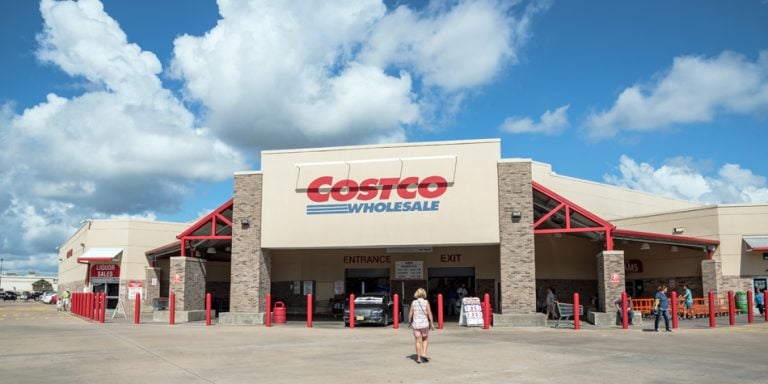While a few retailers are being bandied about as the biggest victims from the Amazon.com, Inc. (NASDAQ:AMZN) buyout of Whole Foods Market, Inc. (NASDAQ:WFM), I’m putting my pessimistic wager on Costco Wholesale Corporation (NASDAQ:COST). COST stock isn’t the biggest loser in Friday’s drubbing of food-related retail, but it’s the one I’m most worried about longer-term.

Here’s why.
It was only about four years ago when I bought Amazon stock because people said they could do nothing right.
Now, with Amazon up $14.6 billion in market capitalization after buying Whole Foods Market Inc. (NASDAQ:WFM) for $13.7 billion, it’s assumed they can do no wrong, and that no one can compete with their genius.
The moves in response were crazy. Wal-Mart Stores Inc (NYSE:WMT) lost more than 6%, for about $10 billion in equity. COST stock is down a similar amount. Target Corporation (NYSE:TGT) is being crushed by more than 8%, while mighty grocer Kroger Co (NYSE:KR) is down roughly 12% — a day after losing 18% on woeful earnings projections.
Even Dollar General Corp. (NYSE:DG) is down a couple percent, and Whole Foods doesn’t sell cigarettes.
It’s an amazing overreaction, truly astonishing in its breadth and depth. Investors are assuming Amazon is about to take over the world. (I still have my shares, by the way. Bow before me, Earthlings!)
COST Stock … And a Surprise Loser
My guess remains that the store being hurt most by this deal is Costco.
I have been a happy Costco shopper for 40 years. I am a former COST stock holder. But I’m 62, my last kid finally exits the house this summer, and I no longer need to buy 42 rolls of toilet paper at once, or 10 pounds of pork shoulder, or 20 pounds of potatoes. I will soon lack the energy to drag my car 20 miles across town each month for $500 worth of stuff I don’t need, even if the prices are incredible.
On the other hand, it might be nice to get a meal-kit, or a prepared meal, delivered to my door soon. Oh, and can they add some wine or a fresh baguette to the order? I’m in.
There are tens of millions of baby boomers just like me, retired or on the cusp of retirement, about to face that same choice. We have talked about this.
Here’s someone else hurt by this — a company no one is talking about.
FedEx Corporation (NYSE:FDX) is up 29% in the last year, but can you imagine how much business this is taking away? An Amazon truck coming from a Whole Foods store beats the speed of tomorrow with that of today. Amazon products are coming to consumers from shorter and shorter distances.
I wouldn’t be a buyer of FDX here.
Who This Doesn’t Hurt
There are also companies being hit by this deal that have no business being hurt.
These start with Walmart. Lips that touch Walmart shall never touch Whole Foods. They’re different demographics entirely. Amazon’s gross margins today are 37%, against 25% for Walmart. For Walmart shoppers, that is a difference worth driving for.
In fact, the Whole Foods deal may be the biggest favor Amazon could do for its larger rival.
What better way to tell the Walmart demographic that they’re getting the lowest online prices? Marc Lore, who runs Walmart’s online operations after selling Jet.com to it last year, must be rubbing his hands with glee.
The Whole Foods demographic, believe it or not, also lets Kroger breathe a sigh of relief. They now have time to get their own meal-kit, pick-up and delivery strategies together.
Here is another company that shouldn’t be sweating this deal: Dollar General.
Dollar General, like rival Dollar Tree Inc.’s (NASDAQ:DLTR) Family Dollar chain, specializes in cheap merchandise, offered nearby, for cheap prices. You want pork rinds and cigarettes, maybe some laundry detergent, and how about some ice cream bars for your baby momma’s brats? If this describes you, you’re not going near a Whole Foods, or any company associated with it.
Not now, not ever. Never.
The Bottom Line
Amazon has cemented its position with the upper middle-class with this deal. Whole Foods is about image as much as it is about overpriced, albeit pretty, pickled peppers.
But you can’t take over the world just selling to the upper middle class.
Dana Blankenhorn is a financial and technology journalist. He is the author of the historical mystery romance The Reluctant Detective Travels in Time, available now at the Amazon Kindle store. Write him at danablankenhorn@gmail.com or follow him on Twitter at @danablankenhorn. As of this writing he owned shares in AMZN.
